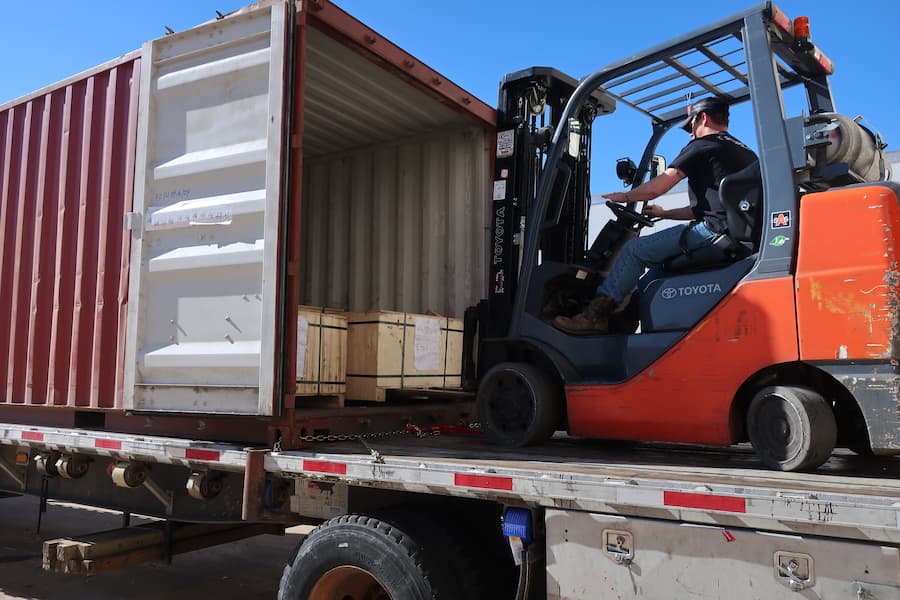The lack of truck parking has reached critical mass: 3 million American truckers now vie for 300,000 parking spots. As we noted in the previous “Parking Problem” post, several factors have combined to create the problem, which is big, growing every day, and expected to get worse as truck volumes increase.
And though the industry may need to take the issue more seriously (the problem ranked 9th in industry concerns but second with truckers), there is headway being made.
Analyzing the Issue
The issue hasn’t gone unnoticed by the federal government. The U.S. Department of Transportation established the National Coalition on Truck Parking in 2015. The coalition’s four working groups study the issue, share best practices, and create products to disseminate information on truck parking issues, such as:
From the Parking Capacity Working Group:
• Involving Shippers/Receivers to Address Truck Parking Capacity
• Creative Uses of the Right-of-way and Adjacent Areas
• Considerations for Maintaining Low-cost Truck Parking Facilities
From the Technology and Data Working Group:
• Truck Parking Availability Detection and Information Dissemination
• Truck Parking App Survey Results
From the Funding, Finance, and Regulations Working Group:
• Public-Private Partnerships (P3) Examples and Considerations
From the State, Regional, and Local Government Coordination Working Group:
• Talking Freight Webinar, May 16, 2018
• How to Improve Truck Parking in Your Region
• The Importance of Considering Truck Parking in Local Planning and Zoning
• Parking and Staging Requirements in Local Zoning and Planning
• Including Truck Parking in State and Metropolitan Planning Organization (MPO) Freight Plans
The Federal Highway Administration (FHA) has also been studying the issue with the help of the American Transportation Research Institute (ATRI), which monitors almost 1 million trucks in real time. In its 2018 annual report, ATRI proposed three strategies to address the parking problem.
- Educate the public regarding the safety impact of eliminating (and not replacing) truck-designated parking spots
- Additional research on real-time truck parking information and reservation systems
- Open up more parking spots on the National Freight Network, which would include investing in new facilities, reopening closed parking areas, and repurposing vacant urban and suburban plots for truck parking
Adding Parking Spaces
There is additional truck parking in the works. Love’s Travel Stops plans to add 40 new locations and more than 3,500 parking spaces in 2019. Jon Archard, Love’s vice president of sales, says that the company is also trying to add parking spots to existing truck stops.
Shippers are also helping out. Unilever, for example, operates a “safe haven” program that allows drivers serving its Newville, PA, warehouse to access parking and facilities.
Municipalities are creating solutions, too. Weed, CA opened free lots adjacent to truck stops and Elmira, NY allows trucks to park in formerly car-only park-and-ride lots for $5 per day.
Changing the Way Parking Is Managed
Charging fees for truck parking spaces are becoming more common. Though most truck stops offer free parking, more and more have added reserved spaces available for a fee. Pilot Flying J offers reservation-only spaces in 400 out of 750 locations. Twelve percent of TA/Petro’s 47,021 spaces are reserved, and on busy corridors, half of them are reservation-only.
Also jumping into the paid-parking game are alternative providers like Truck Specialized Parking Services (TSPS), which operates a secured reserved parking facility in Detroit. TSPS owner Scott Grenerth, a long-time member of the FHA’s National Coalition on Truck Parking, hopes to develop a network of nontraditional spaces.
“We’re looking to do that with truck stop operators and other entities,” Grenerth told Overdrive Online. “We’d like to work with state and local governments and private industry, too—to have parking available as close as possible to where the trucker needs to be.”
Providing Real-time Parking Information
Truck Specialized Parking Services also has a website, RigRest.com, which gives truckers real-time info about available parking. There are other truck parking space apps, too, like Truck Parking USA, Trucker Path, and Park My Truck.
Eight Midwestern states are taking the app idea a step further. A project of the Mid America Association of State Transportation Officials (MAASTO), Trucks Park Here will inform drivers about available parking through up-to-the-minute road signs and will offer open source information to smartphone apps, travel information websites, and more. MAASTO’s federally funded Truck Parking Information Management System (TPIMS) offers the truck parking information along major freight corridors in Indiana, Iowa, Kansas, Kentucky, Michigan, Minnesota, Ohio, and Wisconsin.
“And what’s different about this is that there are a lot of applications out there that use crowd-sourcing to help truckers find parking, this is actually based off technology,” MAASTO TPIMS project manager Davonna Moore told attendees at the National Private Truck Council’s annual convention. “Each state has implemented some sort of technology that will count trucks going in or out of the facilities or will actually do a space-by-space count using technology with cameras or magnetometers in the ground.”
Moore hopes that telematics companies will add MAASTO’s information to trucking GPS programs in order to help truckers and fleets plan routes. The project, which had a soft launch in Fall 2018, will be rolled out along nine high-volume freight corridors this summer.
Educating the Public
One of ATRI’s strategies to address the critical parking problem is education. We’re happy to be a part of that solution, by providing you with the information in this post, in our previous one, and in future posts as more issues surface and solutions emerge. We’d also like to be part of your solution. At Next Exit, we specialize in heavy equipment transport and mission-critical delivery and earn the trust of our clients with efficiency, transparency, and security. In addition, we understand how to handle freight services for unusual, oversized, or overweight shipments and are certified to arrange the shipment of hazardous materials. To learn more about our services, call Next Exit Logistics at 866-624-2661 or contact us via email.




